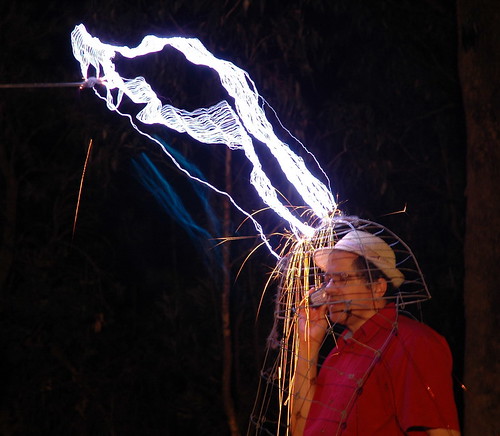You're
checking out at the grocery store. The cashier tells you your total is $20.00 and $4.00. You pause for a second and ask why your total isn't $24. She says that the
price scanner has trouble reading the UPC bar code on the
hot dogs you want so she has to ring them as a separate transaction. You are being asked to pay twice in one visit; two checks, or two debit card swipes, or two currency hand-offs. This is something the store needs to solve, and not a problem that needs to be laid a the feet of the customer.
Earlier this summer, I sent in the renewal for our motorcycle insurance. I mailed a check to the PO box on
California, and the USPS got it there about 10-12 days before it was due. About a month after the expiration/renewal date show on the insurance ID cards we carry when we ride, I received a notice that the policies had been
cancelled for non-payment. I eventually discovered that the insurance company uses some sort of
electronic funds transfer banking trick and there's some route coding anomaly with the check I sent that made it get spit out of their process. The check they recieved was/is legal and valid, issued by
US Bank. There's plenty of money in the account and this was/is not an
NSF issue. My plumber takes the checks for house calls, my veterinarian takes the checks for doggy check-ups and the
Minnesota Wild takes the checks for season tickets. This insurance company took the checks for four years.
Now, for a reason I have no obligation to care about, the insurance company's transactional sleight-of-hand won't process it. Do they walk it over to bank that would gladly accept it for deposit? Nope. Do the call me to tell me what's going on? Nope. Instead, they
never notified me of this matter until we'd been riding with cancelled insurance for
almost five weeks. Thanks, shitheads; you're fired. Hello,
Progessive.
As consumers we get kicked around at every turn. I think we've been numbed to how low our expectations really are. How else can you explain how refreshing
this is:
Here's how Capt. Denny Flanagan does it:
He mingles with passengers in the gate area. He makes gate announcements himself, updating passengers about weather conditions and sets realistic expectations for delays. He uses his cellphone to call United operations to ask about connections for passengers. He passes out information cards to passengers with fun facts about the plane; he signs two of them, whose owners will win a bottle of wine. He snaps pictures of animals in the cargo hold to show owners their pets are safely on board. He writes notes to first-class passengers and elite frequent fliers on the back of his business cards, addressing them by name and thanking them for their business. He personally calls parents of unaccompanied children to give them updates. He instructs flight attendants to pass out napkins asking passengers to write notes about experiences on United, good or bad. He orders 200 McDonald's hamburgers for passengers if his flight is delayed or diverted.




 Took off from
Took off from  If the price of admission wasn't
If the price of admission wasn't 

 In the last 4 hours we've been contacted by folks we know in California, Wisconsin, Colorado, Kansas and Hawaii. Mrs. OctaneBoy as interviewed by phone by a
In the last 4 hours we've been contacted by folks we know in California, Wisconsin, Colorado, Kansas and Hawaii. Mrs. OctaneBoy as interviewed by phone by a 